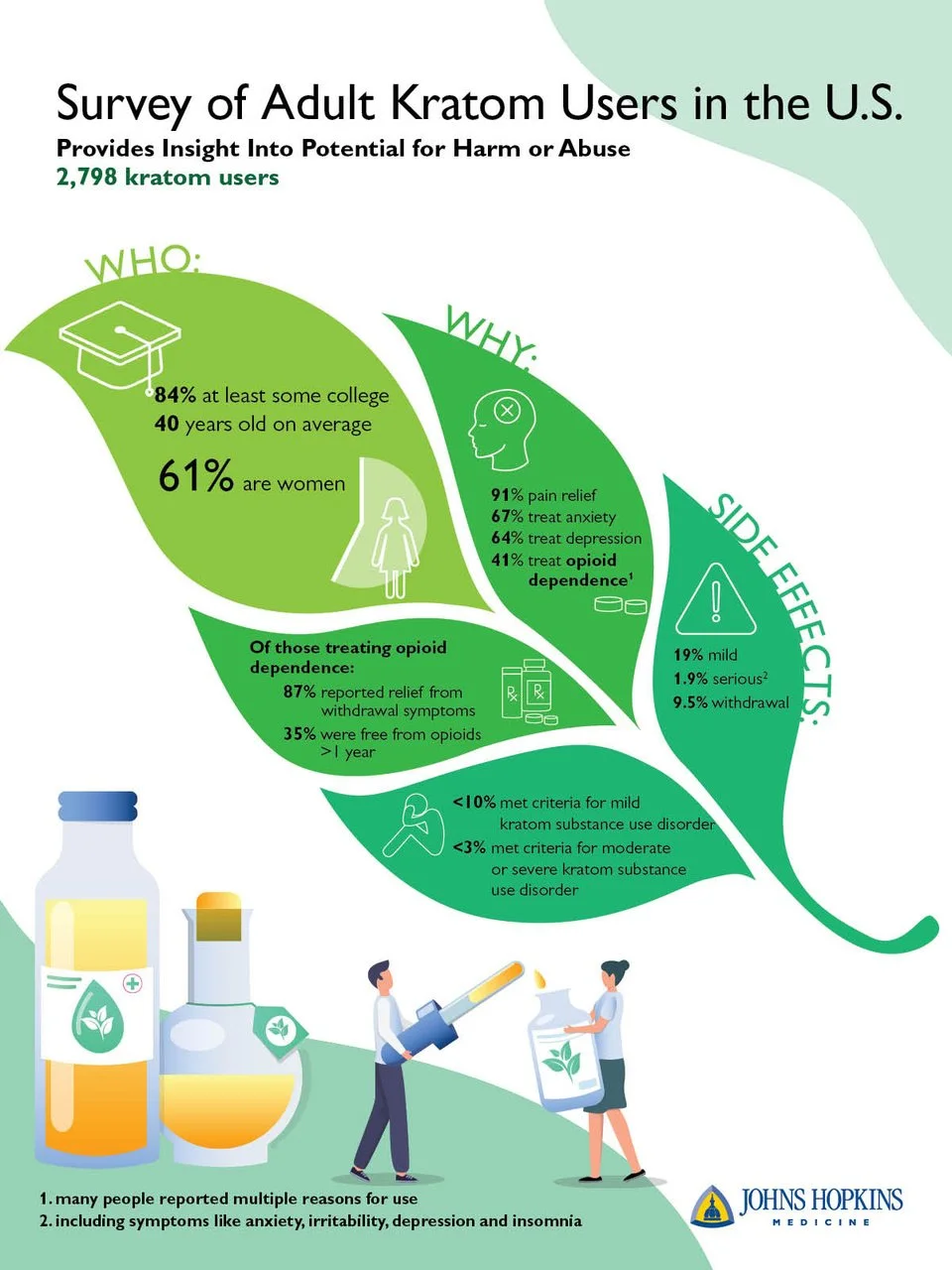Researchers say findings underscore need for research and regulation, but not an outright ban on sales
Credit: Johns Hopkins Medicine
Using results of a survey of more than 2,700 self-reported users of the herbal supplement kratom, sold online and in smoke shops around the U.S., Johns Hopkins Medicine researchers conclude that the psychoactive compound somewhat similar to opioids likely has a lower rate of harm than prescription opioids for treating pain, anxiety, depression and addiction.
In a report on the findings, published in the Feb. 3 issue of Drug and Alcohol Dependence, the researchers caution that while self-reporting surveys aren’t always entirely reliable, they confirmed that kratom is not regulated or approved by the U.S. Food and Drug Administration (FDA), and that scientific studies have not been done to formally establish safety and benefits. They say that U.S. drug agencies should seek to study and regulate rather than ban kratom sales outright because of its seemingly safe therapeutic potential, and as a possible alternative to opioid use.

